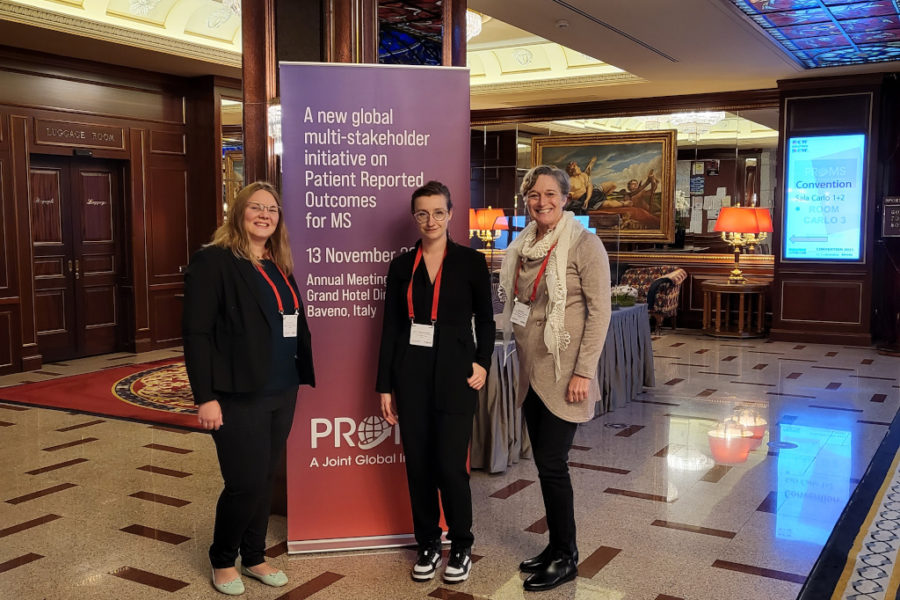Events
PROMS Plenary Meeting 2021
On 13 November 2021, the Global PROMS Initiative held a hybrid version of their annual meeting in Baveno in the Italian Lake District.
The PROMS annual meeting welcomed over 100 participants on site and virtually. This included most of the Initiative’s current participants – the Engagement Coordination Team, the Executive Committee, the Scientific Steering Committee, the working group members – as well as invited speakers from a range of academic and healthcare disciplines. The aim of the event was to showcase the goals and progress of the working groups in the wider context of the research, care and health policy landscape – and importantly, the potential impact for people affected by MS.
The keynote speaker was Professor Guendalina Graffigna from EngageMinds HUB, Milan, Italy, a researcher on the science of patient input – a field that has seen considerable growth in the past 10 years.
Professor Graffigna gave an overview of how patient engagement can be used to provide value in policy: by including the voice of those affected by the disease, their experience is legitimised. She highlighted the need to engage people affected by a disease at all stages of its development and from all walks of life, ensuring a breadth of perspectives is represented in the decision-making process.
Fixing an imperfect system through the voice of those with lived experience
Current ways of measuring the state of an individual with MS are not working well enough. It is clear that individuals with MS experience quality of life changes and disease worsening without it being clinically captured on MRI scans or scales such as the Expanded Disability Status Scale (EDSS). This is where Patient Reported Outcomes (PROs) can make an impact – and the PROMS ECT is helping shape how we decide which symptoms or experiences (‘functional domains’) are most important for people with MS, and how they can be measured effectively.
Not only has the ECT helped to describe the complexity of these functional domains and how they impact individuals differently, members have also emphasised the interactions between the different domains. For instance, fatigue isn’t just ‘fatigue’ but instead affects many other aspects of life, such as coordination, cognition and social interactions to name a few. The team has helped clinicians and academics from the working groups stop and consider their practice and assumptions, giving them ideas of how to effectively drive their work forward. By including paMS in the process, individuals from across the world have been given a voice while being treated as equals.
Susanna van Tonder, Joanna Dronka-Skrzypczak, and Helga Weiland from the PROMS ECT
Photo credit: Joanna Dronka-Skrzypczak, PROMS ECT member


